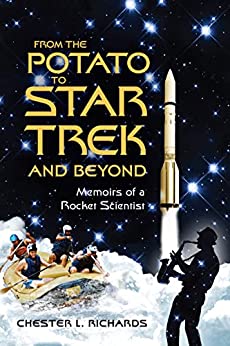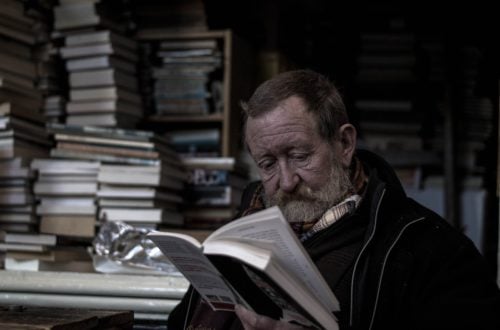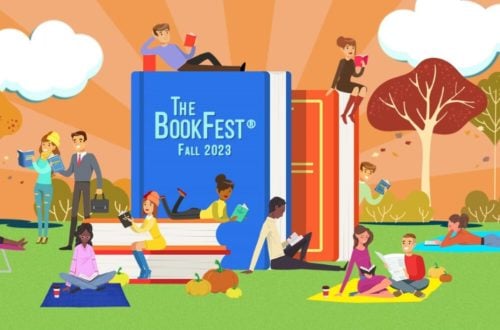
From the Potato to Star Trek and Beyond: Memoirs of a Rocket Scientist by Chester L. Richards: a life of learning
In his memoir From the Potato to Star Trek and Beyond, Chester L. Richards tells varied and inspiring episodes of his life. One of the most important topics he deals with is learning, throughout the book. With in turn fondness or reflection, he shares some of his educational experiences and the mentors who had profound effects on his life.
Formal education
Richards spent the first years of his formal education in Catholic schools. He describes the priests who served as teachers as “shrewd and devious” (p. 176), except one, who turned out to be “truly honest, open and forthright.” (p. 178) For the author’s young self, it was a positive surprise and the class with this priest became “a working session with give and take and many lessons learned both ways.” (p. 178)
Some years later, in university, the author experienced a variety of educational moments, at an age that is often considered pivotal in one’s life. Richards recounts with wit and detail two experiences with two university professors — one genius and kind, the other arrogant and authoritarian.
He was then a student in a graduate school and Dr. Pandres was his Classical Mechanics instructor. The author emphasizes that learning professional physics is extremely hard, and many students struggle and even fail. But he recalls with admiration and fondness how Dr. Pandres made the teaching work for his students: With creativity and kindness, he would explain concepts differently for each student, depending on their differing ways of perception. Richards keeps a striking memory of this professor, who is according to him “a magician.” (p. 231)
The second experience was in the author’s undergraduate years. He had to follow a philosophy course, but his professor proved to be the opposite of educational. The professor staged little interactions with the students intended only to show his superior intellect, even making personal attacks when Richards dared to counter his arguments. The author recalls that “from then on there was a thick wall of ice between the students and the professor,” (p. 223) in essence an unpleasant experience.
Learning at home
Richards expands about his family in several chapters of the book. For a lot of people, family is where you can learn values, principles, behaviors, morals, ideas, and gain many more lessons about specific areas of knowledge. Such was the case for the author: he shares how his parents educated him and helped him learn in different ways. One of the most important aspects of his family life was that even as a child he was considered “an intelligent member of the family” and his “opinion was always respected.” (p. 261)
The author describes his mother as someone intelligent, kind, strong, and good-humored. We can see how important she was, as a person and as a mother. Richards beautifully summarizes: “She lives on in how I live, how I view the world, in my sense of what is right and what is wrong. She lives in my most basic moral foundations.” (p. 262)
With his father, the author recalls learning how to perform practical tasks such as building electronic equipment, handling a saw, using bricks and concrete and more. We learn that the author’s father became an inventor and printing engineer and was continuously learning all his life, setting the example for his son.
Career and life mentors
Indeed, Richards has continued to learn all his life, even after leaving university. His different roles in the aerospace industry and engineering taught him several life lessons and brought him mentors he looked up to.
Some of the most memorable people he met were senior colleagues Dick Baxter, Tom Coultas, or the one he nicknamed “Uncle Bob.” Richards describes them all as highly intelligent individuals, but most importantly kind, willing to mentor him and hear any of his questions.
Another one is Dr. John R. Pellam, who invited Richards to work in his laboratory. The author recalls the professor as his “ideal of a wise, elderly teacher,” (p. 235) a pioneering scientific “totally accessible and wonderfully willing to trade experiences and opinions.” (p. 236) Richards lends him an entire chapter where he recounts one of the professor’s incredible life stories.
Through this memoir, Richards gives homage to the most helpful and memorable mentors of his life. The author was keenly aware of the importance of learning and being open to learn, throughout life. From his early school teachers to music instructors, senior colleagues or his parents, he paints, always with humor, the portraits of these people who taught him valuable lessons. Grab your copy of From The Potato to Star trek and Beyond now on Amazon.



